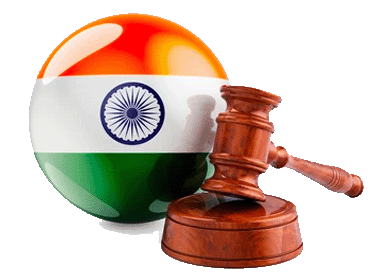Public Gambling Act Of 1867
 When it comes to gambling laws in India, there is a gold standard that has been around for over 150 years. This law is known as the Public Gambling Act of 1867 and outlaws most gambling forms in the entire country. There have been some changes to the legal structure of gambling since, but these are minimal.
When it comes to gambling laws in India, there is a gold standard that has been around for over 150 years. This law is known as the Public Gambling Act of 1867 and outlaws most gambling forms in the entire country. There have been some changes to the legal structure of gambling since, but these are minimal.
The Public Gambling Act’s effect is still felt throughout most of the country today. This page is dedicated to the Public Gambling Act of 1867 and has pertinent information on how it affects legal gambling in India.
What Does The Public Gambling Act Of 1867 Do?
The Public Gambling Act of 1867 makes brick-and-mortar gambling illegal in India. At the time of its passing, gambling was viewed as a negative activity from both a moral and criminal standpoint. The Indian government saw it fit to pass a law that would effectively ban all gambling forms that existed at the time.
Illegal Gambling Forms Under The PGA
- Casino gambling
- Poker
- Sports betting
- Race betting
- Lotteries
- Dice games
Loose Wording Of The Public Gambling Act
The Public Gambling Act has seen some controversy over the years, especially with the introduction and integration of digital technologies into gambling. This is due to the wording present in the law.
According to the PGA, all gambling conducted in a gaming house is illegal. The original definition of gaming house was any walled-in enclosure offering games with dice or any other system of counting as a measure to determine wagers.
Then, in 1976, an amendment was passed changing the law’s definition for a gaming house to “any house, room, tent, enclosure, space, vehicle, vessel or place.” It is easy to see why there has been some confusion regarding the legalities of online betting within the confines of this definition.
Some lawmakers consider a computer a “vehicle” or “vessel” for online gambling. Based on the definition, this would mean computers, which inherently act as the mediator between bettors and online wagering services, are illegal according to India law.
However, some politicians consider this association too much of a stretch to be considered an enforceable stature. This is why enforcement on online gambling is practically nonexistent.
Section 12 Could Change Everything
The Public Gambling Act of 1867 is the undeniable legal benchmark for gambling in India. However, the law applies to games of chance, not skill. Whether or not sports betting is considered a game of skill or a game of chance is a highly debated topic, and not just in India.
Governments everywhere have tried to make the distinction, as it often plays a major role in legislative decisions. Section 12 of the PGA states that the law does not apply to games of skill, only games of chance.
If sports betting were considered a game of skill in a legal setting, the market would then open up and be considered legal throughout the country. Horse race betting is considered a game of skill and is thereby the only legal form of sports wagering allowed in the country. The Indian government has yet to recognize sports betting as a game of skill, but a legal clarification could move it out from under the PGA.
State Split From The Public Gambling Act
The Public Gambling Act was considered the major law for a long time. All Indian states followed the PGA and did not allow any type of gambling to exist. In 1950, the Constitution of India was written into law.
This legal doctrine gave states the right to pass legislation for legal gambling forms. Under the Constitution, states no longer had to support the PGA’s benchmarks for any gambling type. This was the first domino that led to the legalization of horse race betting, lotteries, poker, casino gambling, and more.
Despite this privilege, many states still chose to consider the Public Gambling Act their overriding law regarding gambling. However, some took advantage of this newfound autonomy and decided to introduce legal gambling.
Sikkim and Goa are the two most successful states when it comes to legal gambling. There are brick-and-mortar casino locations in both states available to local residents. Out of these two states, Sikkim is the only one to pass an amendment that allows for legal online sports betting. Unfortunately, just because legislation is passed does not mean it will amount to anything.
Sikkim has yet to issue any licenses to online sports betting operators. It is unclear when they will be able to offer legal betting options. Even if they one day do, it will only be available to Sikkim residents. Any Indian residents outside of Sikkim will not be able to use the sites.
Who Regulates Gambling Under The PGA?
India’s central government handled regulation for a long time. Since the PGA restricts most forms of gambling, the federal government seemed the best option for enforcement. Since the Constitution gave states the right to introduce their own gambling forms, regulatory responsibilities have shifted over as well. Each state is charged with regulating gambling (if any) that is present in the state.